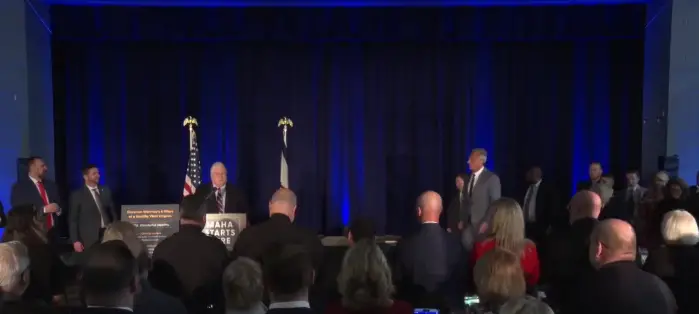CHARLESTON, W.Va. — Members of the House of Delegates began meeting twice a day this week as the legislative deadline for bills to pass from the House of Delegates to the Senate draws near.
The House overwhelmingly voted Tuesday to pass Senate Bill 199, which was more than a year in the making. The measure would address student behavior intervention and teacher safety. It would establish guidelines for the re-entry of a student who has been excluded from the classroom or school bus for disorderly conduct. A behavioral plan, developed by a school counselor, school social worker or school psychologist, would need to be developed before the student could return. It also would require the counselor or social worker to participate in a conference and implement a behavioral plan before a student who had been excluded twice in one semester could be readmitted.
Delegates spent a great deal of time on the floor this week discussing foster care and child welfare. House Bill 2027, which passed the full House by a vote of 97-2, would change the process for the state to remove a child from a foster home. It would specify that a child who has been in a suitable placement for more than 15 consecutive months, or 50 percent of the child’s life, cannot be removed unless it is in the child’s best interest.
House Bill 2880 had only one vote against its passage. It would assign a “Parent Resource Navigator” through the Court Improvement Program or Public Defender Services to serve as part of the Bureau for Children and Families’ multidisciplinary team. This individual would be charged with helping parents trying to be unified or reunified with their children work through the legal system.
House Bill 2377, which unanimously passed the House Thursday, would bring more transparency to fatalities and near fatalities of children involved in the child welfare system while still maintaining necessary confidentiality. It would update child welfare data reporting and create a Critical Incident Review Team to review both fatalities and near fatalities involving children in the child welfare system. It would allow the Foster Care Ombudsman to access relevant reports and would require reports to be retained for at least one year.
House Speaker Roger Hanshaw, R-Clay, addressed the House at the end of Wednesday’s floor session, reminding them the incremental changes they had voted on that day ultimately result in systematic reforms.
“It may not have seemed that way to those outside the body, outside the building, but we took up questions today of how we address — how society addresses — some of the most vulnerable people in our charge,” Hanshaw said. “We took up a discussion about foster care and young people who are our responsibility. We talked about issues of criminal justice reform, how one gets a black mark expunged from one’s record to enter the workforce and rejoin society as a productive member. We talked about issues of criminal justice. This was a big day.”
Speaker Hanshaw also noted the oversized emphasis that often becomes put on the Legislature when crises occur.
“You know, not every problem — not every problem — can be solved by the government. Not every problem can be solved by a law, not every problem can be solved by a judge, not every problem can be solved by the governor,” he said. “We had, on the discussion of our first bill today, what I believe to be a very meaningful conversation about what the role is of families in society and how we as the government relate to those who are just simply trying to keep a family together.
“And I think it’s important to note that we have children in foster care in West Virginia. We have a foster care problem that wasn’t created by the government, that wasn’t created by the courts, that wasn’t created by the Legislature, that wasn’t created by DHHR. It was created because men and women chose to prioritize drugs and substance abuse and other things over their children.”
Hanshaw reminded the Delegates to “continually reflect on the fact that the very best we can do is our best.”
“Our goal today, for the next period of time we have together, for this legislative session and always, needs to be to contribute as well as we can contribute in the society to allow men and women of West Virginia, families of West Virginia, citizens of West Virginia, to solve our own problems and continue to create an environment in which that’s possible.”
The 60-day, regular legislative session ends at midnight April 12.
















